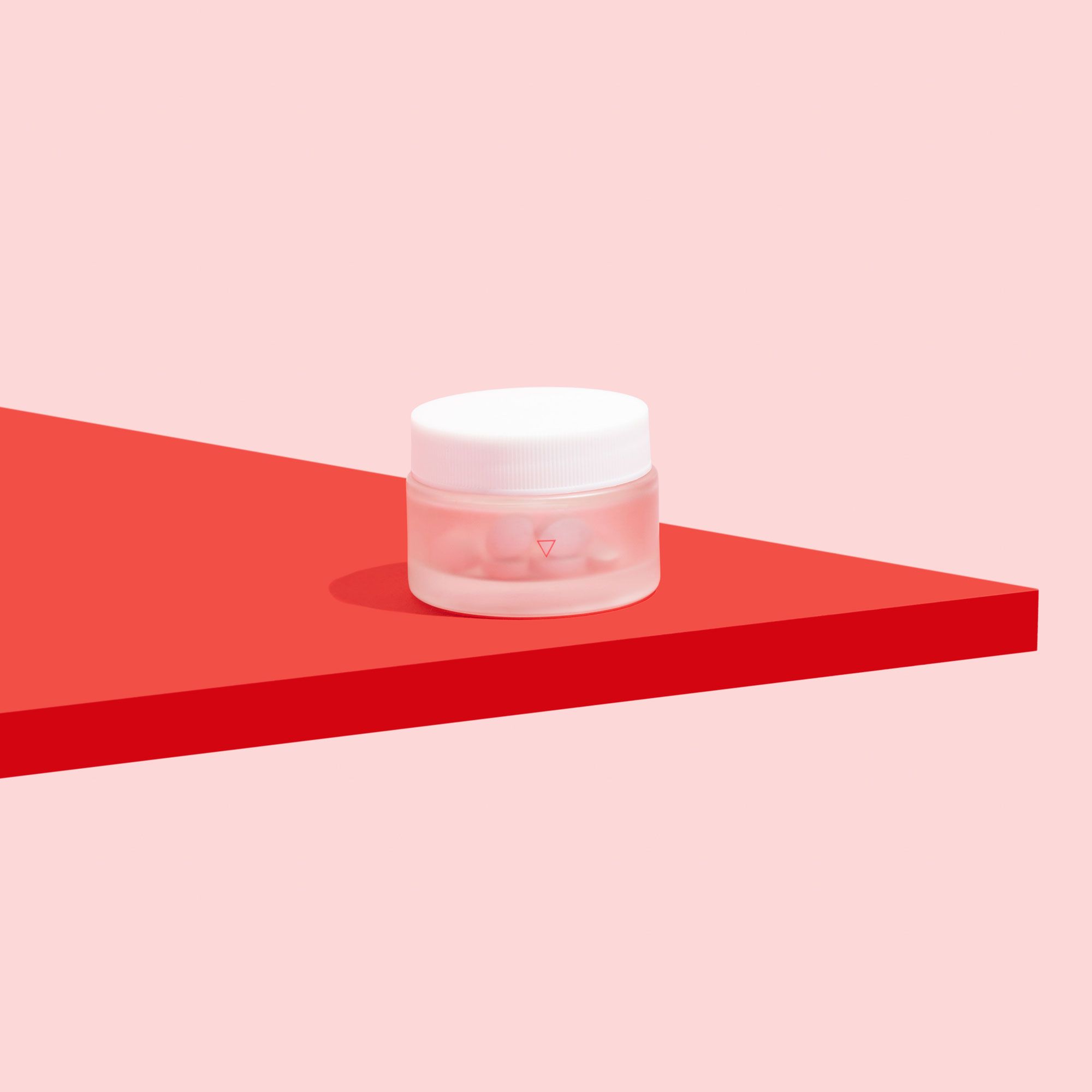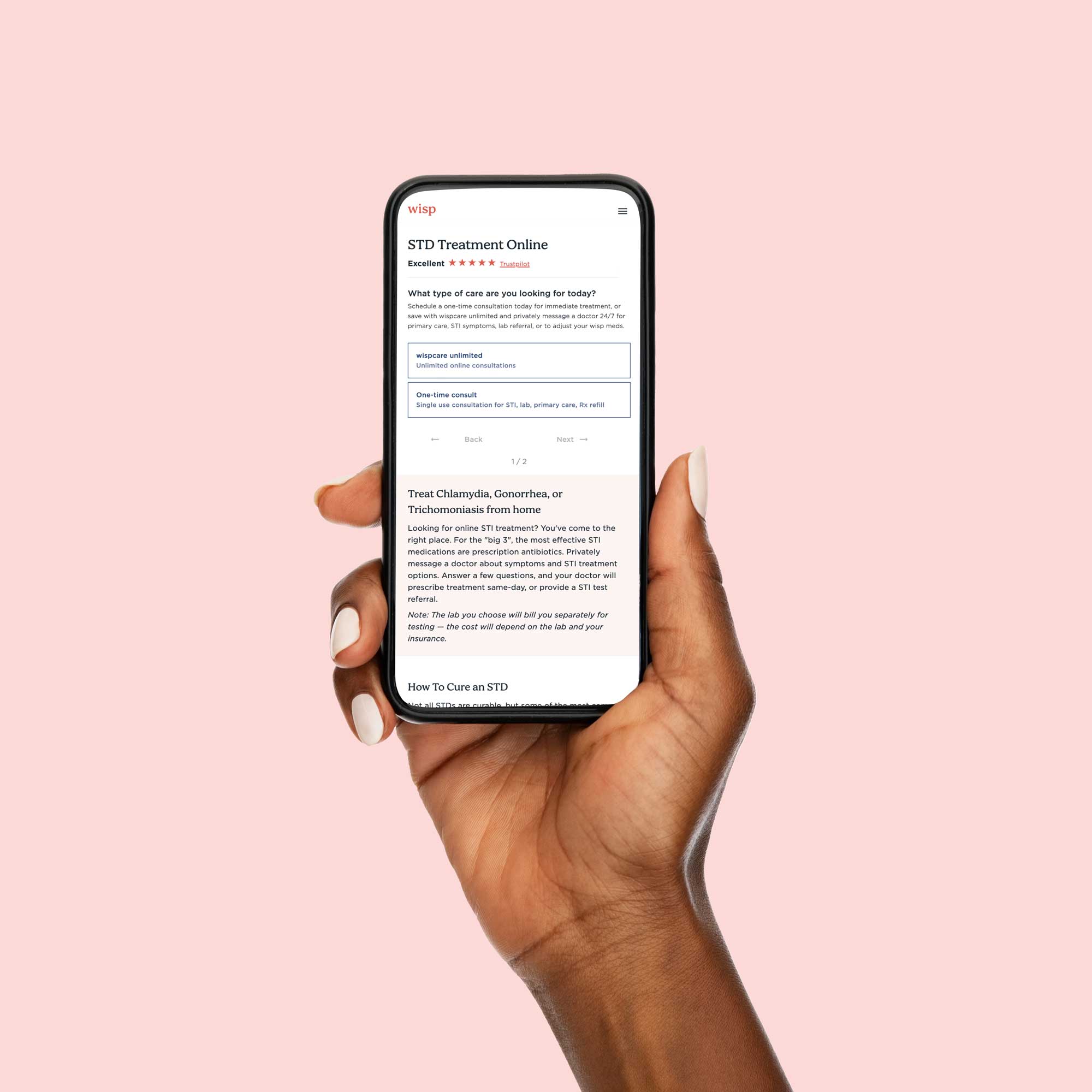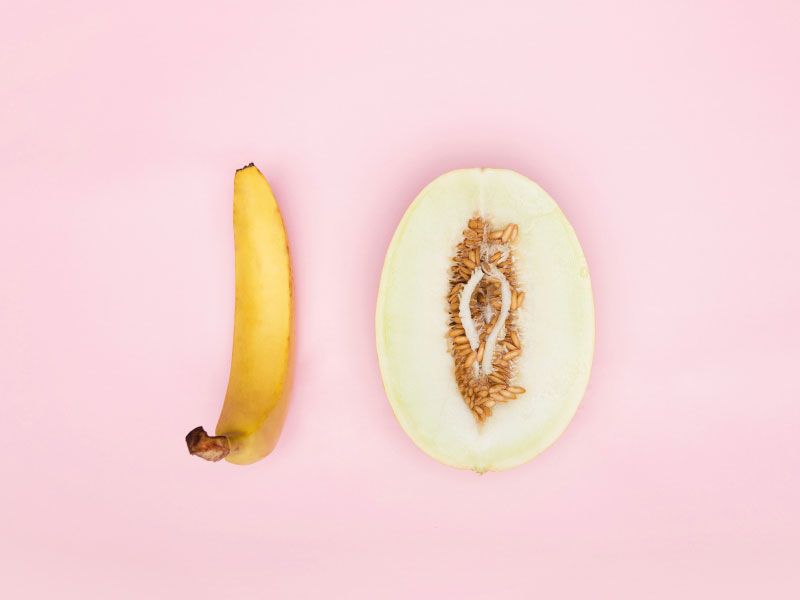
Why Do Yeast Infections
Develop After Sex?
Published on April 14, 2021
Updated on April 2, 2025
Written by Kathleen Morrison
Medically Reviewed by Andrea Sleeth WHNP-BC, MSCP
We get how embarrassing and uncomfortable yeast infections can be, especially if it seems like they’re always happening after you get intimate. What’s the deal?
Yeast infections are an all-too-common discomfort that many (if not most) people experience at some point in their lives. In fact, around 75% of women will get a yeast infection at least once in their lives, and you can be sure that some of those cases occurred after getting down and dirty.
But why does this happen? There are a few different factors at play, from changes in your vaginal pH to the introduction of moisture and friction during intercourse.
While these infections can be pretty annoying, they're definitely not the end of the word. And if you feel like you keep getting yeast infections after having sex, there are definitely some precautions you can take to avoid the whole ordeal.
Can you get a Yeast Infection from Sex?
First of all, can this happen?
Yes, (unfortunately) it's entirely possible to get yeast infections from sex, but that doesn't mean it's an STI.
Vaginal yeast infections are caused by the fungus Candida. While Candida is a very normal part of any vaginal ecosystem, too much of this fungus can lead to a yeast infection (vaginal candidiasis), which is really more of an irritating and uncomfortable burden than anything else.
Surprisingly, people with vaginas aren't the only ones who can get yeast infections. In some cases, a person with a penis can get a yeast infection if they have penetrative sex with someone who has a yeast infection. It's also possible to spread yeast infections between female partners, too.
That's why it's usually best to put yourself out of commission until it clears up. Luckily, most vaginal yeast infections clear up pretty quickly and easily with some time and the right treatment.
Causes of Yeast Infections from Sex
Yeast infections happen when something throws your vagina's bacteria off course. Things like lube, a new partner, oral sex, or antibiotics can cause your vagina to start producing too much Candida, which results in a yeast infection.
Particularly with oral sex, bacteria and any Candida fungus from your partner's mouth can pass to other parts of your body they get close with. This is especially the case when your partner has oral thrush.
Sex toys can also increase the chances that bacteria will get really comfortable on (and in) your body. If you regularly use toys, always make sure to wash them with antibacterial soap after use and store them in a clean, dry area. Give your toy a quick wash or wipe with a personal cleansing wipe right before you use it.
How To Avoid Getting Yeast Infections After Sex
You shouldn't have to restrict your sex life just because you think you might get a yeast infection. But here's what you should keep in mind:
- Don't use fragrant cleansers on or around your vagina. Unscented soaps approved for sensitive skin will help keep your vagina from getting too irritated, which can limit your chances of infection. Fragrant cleansers can easily throw off your vagina's normal pH, making it easier for bacteria to thrive.
- Avoid douching. Your vagina is a self-cleaning machine. Douching can disrupt your natural flora and fauna, throwing your good bacteria through a loop.
- Clean up after sex. If bacteria has been introduced, doing a thorough cleaning can rinse a lot of it away, and it's definitely better than letting it sit there while you cuddle throughout the night.
- Take probiotics. Antibiotics can suppress the normal bacteria that hangs out in your body, which can cause Candida to grow out of control. If you're on an antibiotic or just finished a round, consider giving your good bacteria a little boost by taking a daily probiotic.
- Try boric acid. If you're continually getting fungal infections after sex, it might be helpful to try out boric acid, which is an antifungal treatment. It's a vaginal suppository that you usually insert at night, so you can pop one in after you have sex and let the balancing take care of itself.
- Always pee after sex. This can help flush out any bacteria that could encourage any vaginal infections. You can always give yourself a quick swipe with a cleansing wipe to be certain.
- Wipe correctly. When you're cleaning yourself, and especially after peeing, always remember to wipe from front to back so that you aren't introducing even more bacteria into your vagina.
- Maybe... lay off sex for a while. Try to avoid any type of sex with a partner (or on your own with sex toys) until you and your partner are clear of the yeast infection. This can keep a yeast infection that already exists from spreading to other parts of your body or to your partner.
These statements have not been evaluated by the Food and Drug Administration. This product is not intended to diagnose, treat, cure, or prevent any disease.
Dealing With Constant Yeast Infections
If yeast infections keep showing up after sex, your body might not have fully healed from the last one. Sometimes, an infection isn’t completely cleared, and sex can trigger yeast infection symptoms to act up all over again. Even if your symptoms aren’t intense, irritation from sex—like friction or swelling—can make everything feel worse.
If you ever take prescription oral antifungals to treat vaginal yeast infections, always finish the full course, even if you start feeling better after a few days. Your body needs time to clear the infection fully. Most yeast infections clear up within a week, but stubborn ones can take up to two.
Wisp treatment options are available only after consultation with a licensed medical professional. You should consult with your healthcare provider before starting a new supplement or treatment regimen. Individual results may vary.
Give your body time to heal
Jumping back into sex too soon can make it harder for your body to fully recover. Waiting until symptoms are completely gone before having sex again can help avoid irritation and reinfection. If yeast infections keep coming back, it might be worth taking a short break from sex to let your body reset.
Check for possible triggers
Frequent yeast infections could be linked to things like hormonal changes, diet, antibiotics, birth control pills, or even certain lubes and condoms. Keeping track of when your infections happen might help you spot a pattern—like if they always show up after using a particular product or during a certain time in your cycle.
Support your vaginal health daily
Probiotics, a balanced diet, and pH-friendly products can help support urinary health. Simple changes—like wearing breathable cotton underwear, avoiding scented soaps, and staying hydrated—can make a big difference. And if infections won’t quit? A healthcare provider can help figure out what’s going on and recommend the right treatment.
Can Lack of Sex Cause Yeast Infections?
No, you’re not going to get a yeast infection just because you aren't having sex. Your body won't turn on you because you're choosing not to be intimate with anyone.
However, whether you're sexually active or sex isn't currently a priority, you can still get a yeast infection either way. It's a common occurrence that happens for a number of reasons that could be completely unrelated to intercourse.
Factors like stress, lack of sleep, hormonal imbalances, diabetes, and even a weakened immune system can increase your chances of developing just that little bit too much yeast, landing you in an uncomfortable situation.
Even if you follow all the recommendations, yeast infections can still happen, and it’s not your fault. So don't fret! You just need to get in touch with a healthcare provider, get your yeast infection diagnosed, and get the prescription antifungal medication you need (plus some TLC).
Dodging Yeast Infections After Sex
Yeast infections after sex can be super frustrating and uncomfortable, but they are more common than many realize, and you’re not alone.
Sex introduces new bacteria, changes vaginal pH, and creates friction—all of which can set the stage for yeast overgrowth. It’s normal! Certain products, like flavored lube or condoms with added ingredients, can also play a role.
If this is a regular thing for you, small shifts—like switching to pH-friendly products, incorporating probiotics, or using an over-the-counter treatment like boric acid suppositories—can help support your vaginal health. And if yeast infections keep crashing the party, chatting with a healthcare professional can help you find a treatment plan that works for your body. You deserve a comfortable, healthy sex life without the unwanted side effects.
Take charge of your sexual health—get fast, affordable yeast infection prescription treatment with Wisp today!
Frequently Asked Questions (FAQ):
Why do I get a yeast infection after sex?
Sex can shake up your vaginal pH, making it easier for yeast to thrive. Things like friction, semen, and certain lubricants can all contribute. If either partner has an active yeast infection, it can also be passed during sex.
Can a man give a woman a yeast infection?
Yep! While yeast infections aren’t STIs (sexually transmitted infections), yeast can be passed between sexual partners—especially if one person already has an infection.
Can a guy coming in you cause a yeast infection?
For some, semen can throw off vaginal pH, making yeast overgrowth more likely. It’s not a direct cause, but it can create an environment where yeast infections are more common.
Is my boyfriend giving me yeast infections?
It’s possible! Even if he doesn’t have symptoms, yeast can still be shared during sex. If you keep getting infections, it might be worth treating both partners to break the cycle.
This blog post is for informational and educational purposes only and should not be taken as professional advice. Always consult with a qualified professional before making any decisions based on the information provided here.

Diflucan, Generic Fluconazole (Yeast Antifungals)
Prescription antifungals used to treat vaginal yeast infections
Starting at $45.00
Get Started
Vaginal Health Consult
Private, online vaginal health consultation.
One Time Consult $45.00
Get Started

